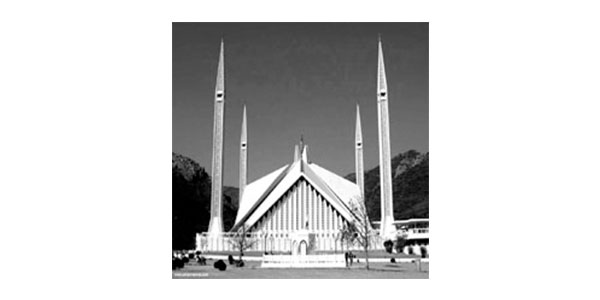Of peaceful coexistence in Islam
APART from various unfounded allegations, apportioned on Islam, one of the most frequented allegations is that Islam does not appreciate the idea of pluralism and, hence, does not allow the peaceful co-existence of different societies, practising different faiths.
Islamophobes, who leave no stone unturned to malign Islam, advance and permeate this ill-conceived and self-cooked up narrative among the people living in the non-Muslim world.
They project Islam as xenophobic, biased and prejudiced towards other faiths that is, for sure, a baseless accusation against the most assimilative, adaptive and accommodative faith on the surface of earth, called Islam.
However, Islamic divine scripture and recorded annals depict exceedingly contrary to what the anti-Islamic forces propagate against Islam.
Islam is the religion, in fact, second to none in terms of tolerance, forbearance and religious pluralism.
This pluralistic dimension of Islamic teachings has, unfortunately, achieved little attention in our time despite its vital significance in our society.
In today’s globalised and sometimes polarized world, there is dire need to understand the pluralistic perspective of Islam in order to develop an environment of peaceful co-existence.
There are several verses in the Holy Quran that underline human pluralities, such as social, biological and religious differences.
According to the Holy Quran, all human beings are from the same soul but they have been created with differences.
The following verse beautifully depicts human plurality: “Oh mankind, We (God) have created you male and female, and made you into communities and tribes, so that you may know one another.
Surely, the noblest among you in the sight of God is the most God-fearing of you; God is all-knowing and all-aware” (49:13).
The verse reveals that diversity is a natural part of human society and important for human identity.
The nobility of a human being depends on one’s actions and Allah is the only one who can judge the piety and nobility of a human being.
The Quran highlights the plurality of religious communities too. It says that Allah has purposefully created different communities, or else, he could have made all humanity a one community.
In another verse, Allah says, “For each community, we have appointed from you a law-giver and a way.
Had God willed, He could have made you one community. But that He might try you by that which He has given you [He has made you as you are]. So vie with one another in good works” (5:48).
By recognizing the plurality of faith and communities, the Holy Quran teaches us not to impose one’s faith on others; rather, it urges to tolerate the differences: “Let there be no compulsion in religion” (2:256); and “To you is your path [religion]; to me mine” (109:6).
The teachings of the Holy Quran are vivid on plurality in human society. The life and the teachings of the Holy Prophet (SAWW), too, provide the best examples of the pluralistic approach and practice in Islam.
Chronologically, there are many occasions in Islamic history where Holy Prophet (SAWW) evinced unparalleled tolerance and respect towards the people of other faiths and dealt respectfully with his opponents.
For instance, when a prominent Christian delegation came from Najran to engage the Holy Prophet (SAWW) in a theological debate in Medina, its members were not only invited to live in the Prophet’s mosque but also allowed to perform their religious practices inside the mosque.
Similarly, during the famous treaty of Hudaibiya, the Prophet showed a highly pluralistic approach while accepting the apparently bitter demands of the Quraish without the latter’s recognition of his Prophethood.
The event of the conquest of Makkah was another occasion of the Prophet’s pluralistic and humanistic approach.
After the conquest, he not only granted amnesty to the people of Makkah, who severely persecuted him and even compelled him to leave his ancestral abode (Makkah), but also declared the house of his bitter opponent Abu Sufyan as a place of asylum and peace, regardless of who accepted Islam and who didn’t.
The Quranic message on pluralism and diversity was also reflected in the Charter of Medina which the Holy Prophet (SAWW) himself formulated.
It brought together different religious and ethnic communities, bestowing upon each of them equal rights and responsibilities.
The treaty which the Prophet forged with the Christian monks of Najran, protecting their monastery and guaranteeing them freedom of religion, was yet another testimony to Islamic pluralism.
In addition, it is also evident that in the 1400-year history of Islam, whenever Muslim societies flourished and set up highly developed societies, pluralism was a key characteristic of those societies.
The Abbasids’ Baghdad, the Fatimid’s Cairo, not to forget the Umayyads’ Cordoba, became centres of excellence by welcoming and nurturing the best minds from different regions, backgrounds, faiths, etc.
Consequently, these dynasties through their pluralistic mechanisms developed powerful and vibrant civilizations.
The world, today, stands globalised where modern means of communication, by shortening the distances, have brought different nations closer; however, this proximity has also created tension amongst the nations as well as within their respective societies.
This very situation warrants adherence to Islamic teachings and principles that helped in carving out pluralistic societies in the past.
To sum it up, keeping in view the realities of today’s world and, particularly of our own country, it is imperative that we must implement and act upon the pluralistic ideals of Islam that have the full sanction of Islam.
Sincere efforts, in this respect, are needed to make the pluralistic teachings of Islam a part of our individual as well as social life in order to shape and sustain a milieu of peaceful coexistence.
— The writer is contributing columnist, based in Quetta, Balochistan.










